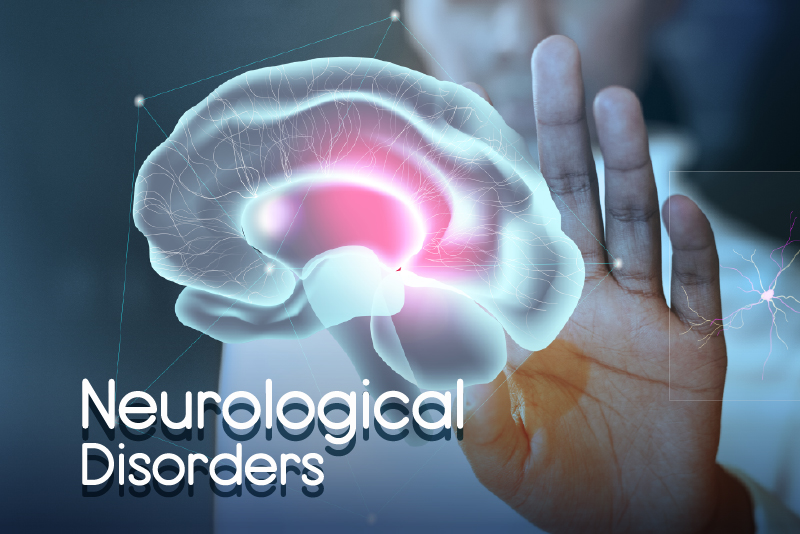Neurological disorders affect the central and peripheral nervous systems. According to reports from the World Health Organization (WHO), neurological disorders affect millions of people around the world each year, though many may be unaware they have one. Billing and coding for neurological disorders can be challenging. As healthcare practices and facilities focus more on patient care, they can seek the assistance of medical billing companies to efficiently manage their billing, coding and claim submission process. Such companies have skilled medical coders who are knowledgeable about the codes to report various neurological disorders and can help providers ensure accurate clinical documentation.
As neurological disorders affect the central nervous system, they impact multiple bodily processes. Factors that cause neurological disorders include genetic defects, degenerative changes, seizure disorders, vascular problems, injuries, structural or anatomic defects and other infections. Depending on the part of the nervous system the neurological condition affects, the person may experience symptoms such as difficulty with movement, sensations, swallowing, breathing, speech, learning and memory.

Enhance your neurology medical billing with our expert medical billing services.
Find Out More
Call: (800) 670-2809
When physicians suspect someone has a neurologic condition, a range of neurologic tests can help determine the diagnosis. The modalities that help physicians confirm a diagnosis include angiograms, computed tomography (CT scans), electroencephalograms (EEGs), Magnetic resonance imaging (MRI), and positron emission tomography (PET).
Here are five common neurological disorders and their ICD-10 codes –
Alzheimer’s Disease (AD) – A progressive brain disorder, AD causes the brain cells to shrink and degenerate. The condition results in a continuous decline in the thinking, behavioural and social skills that affects a person’s ability to function independently. Forgetting recent events or conversations is one of the most common symptoms of the condition. ICD-10 codes for AD include –
- G30 Alzheimer’s disease
- G30.0 Alzheimer’s disease with early onset
- G30.1 Alzheimer’s disease with late onset
- G30.8 Other Alzheimer’s disease
- G30.9 Alzheimer’s disease, unspecified
Parkinson’s Disease (PD) – A chronic, progressive disorder, PD affects the nervous system and the parts of the body controlled by the nerves. It causes progressive deterioration of motor function due to loss of dopamine-producing brain cells. Symptoms of PD begin gradually and worsen over time. It may vary from one person to another and may often be mild and go unnoticed. A barely noticeable tremor in just one hand is one of the initial symptoms of the condition. ICD-10 codes include –
- G20 Parkinson’s disease
- G21 Secondary Parkinsonism
- G21.0 Malignant neuroleptic syndrome
- G21.1 Other drug-induced secondary parkinsonism
- G21.11 Neuroleptic induced parkinsonism
- G21.19 Other drug induced secondary parkinsonism
- G21.2 Secondary parkinsonism due to other external agents
- G21.3 Postencephalitic parkinsonism
- G21.4 Vascular parkinsonism
- G21.8 Other secondary parkinsonism
- G21.9 Secondary parkinsonism, unspecified
Epilepsy – This is a common neurological disorder that can affect men and women of all ages. The condition is characterized by abnormal brain activity and causes seizures or periods of unusual behaviour, sensations and sometimes, loss of awareness. Symptoms vary depending on the type of seizure. Treatment involves medications and surgery. The ICD-10 codes for epilepsy include-
- G40 Epilepsy and recurrent seizures
- G40.0 Localization-related (focal) (partial) idiopathic epilepsy and epileptic syndromes with seizures of localized onset
- G40.1 Localization-related (focal) (partial) symptomatic epilepsy and epileptic syndromes with simple partial seizures
- G40.2 Localization-related (focal) (partial) symptomatic epilepsy and epileptic syndromes with complex partial seizures
- G40.3 Generalized idiopathic epilepsy and epileptic syndromes
- G40.A Absence epileptic syndrome
- G40.A0 Absence epileptic syndrome, not intractable
- G40.A1 Absence epileptic syndrome, intractable
- G40.B Juvenile myoclonic epilepsy [impulsive petit mal]
- G40.B0 Juvenile myoclonic epilepsy, not intractable
- G40.B1 Juvenile myoclonic epilepsy, intractable
- G40.4 Other generalized epilepsy and epileptic syndromes
- G40.5 Epileptic seizures related to external causes
- G40.8 Other epilepsy and recurrent seizures
- G40.9 Epilepsy, unspecified
Multiple Sclerosis (MS)-MS affects the central nervous system that disrupts the flow of information within the brain, and between the brain and body. It can cause permanent damage or deterioration of the nerves. Symptoms may differ depending on the location of the affected nerve fibers. Treatment includes a combination of medications and physical therapy exercises to reduce symptoms. ICD-10 codesfor MS include –
- G35 – Multiple sclerosis
- G36 – Other acute disseminated demyelination
- G36.0 – Neuromyelitisoptica [Devic]
- G36.1 – Acute and sub-acute hemorrhagic leukoencephalitis [Hurst]
- G36.8 – Other specified acute disseminated demyelination
- G36.9 – Acute disseminated demyelination, unspecified
- G37 – Other demyelinating diseases of central nervous system
- G37. 0 – Diffuse sclerosis of central nervous system
- G37. 1 – Central demyelination of corpus callosum
- G37. 2 – Central pontine myelinolysis
- G37. 3 – Acute transverse myelitis in demyelinating disease of central nervous system
- G37. 4 – Sub-acute necrotizing myelitis of central nervous system
- G37. 5 – Concentric sclerosis [Balo] of central nervous system
- G37. 8 – Other specified demyelinating diseases of central nervous system
- G37. 9 – Demyelinating disease of central nervous system, unspecified
Migraine – Migraine headaches occur due to certain changes in the brain and surrounding blood vessels. The condition can cause severe throbbing pain, usually on one side of the head. A migraine can last from hours to days and interfere with a person’s day-to-day activities. The right combination of medications along with self-help remedies and lifestyle changes can help reduce symptoms. ICD-10 codes include –
- G43 Migraine
- G43.0 Migraine without aura
- G43.00 Migraine without aura, not intractable
- G43.01 Migraine without aura, intractable
- G43.1 Migraine with aura
- G43.10 Migraine with aura, not intractable
- G43.11 Migraine with aura, intractable
- G43.4 Hemiplegic migraine
- G43.40 Hemiplegic migraine, not intractable
- G43.41 Hemiplegic migraine, intractable
- G43.5 Persistent migraine aura without cerebral infarction
- G43.50 Persistent migraine aura without cerebral infarction, not intractable
- G43.51 Persistent migraine aura without cerebral infarction, intractable
- G43.6 Persistent migraine aura with cerebral infarction
- G43.60 Persistent migraine aura with cerebral infarction, not intractable
- G43.61 Persistent migraine aura with cerebral infarction, intractable
- G43.7 Chronic migraine without aura
- G43.70 Chronic migraine without aura, not intractable
- G43.71 Chronic migraine without aura, intractable
- G43.A Cyclical vomiting
- G43.B Ophthalmoplegic migraine
- G43.C Periodic headache syndromes in child or adult
- G43.D Abdominal migraine
- G43.8 Other migraine
- G43.80 Other migraine, not intractable
- G43.81 Other migraine, intractable
- G43.82 Menstrual migraine, not intractable
- G43.83 Menstrual migraine, intractable
- G43.9 Migraine, unspecified
- G43.90 Migraine, unspecified, not intractable
- G43.91 Migraine, unspecified, intractable
- G44 – Other headache syndromes
- G44.0 – Cluster headaches and other trigeminal autonomic cephalgias (TAC)
- G44.1 Vascular headache, not elsewhere classified
- G44.2 – Tension-type headache
- G44.3 – Post-traumatic headache
- G44.4 – Drug-induced headache, not elsewhere classified
- G44.5 – Complicated headache syndromes
- G44.8 – Other specified headache syndromes
By partnering with a proficient neurology medical billing company, healthcare practices can ensure precise billing and coding, as well as prompt submission of claims. Outsourcing these critical tasks enables healthcare providers to prioritize patient care while guaranteeing accurate and timely reimbursement for their services.





